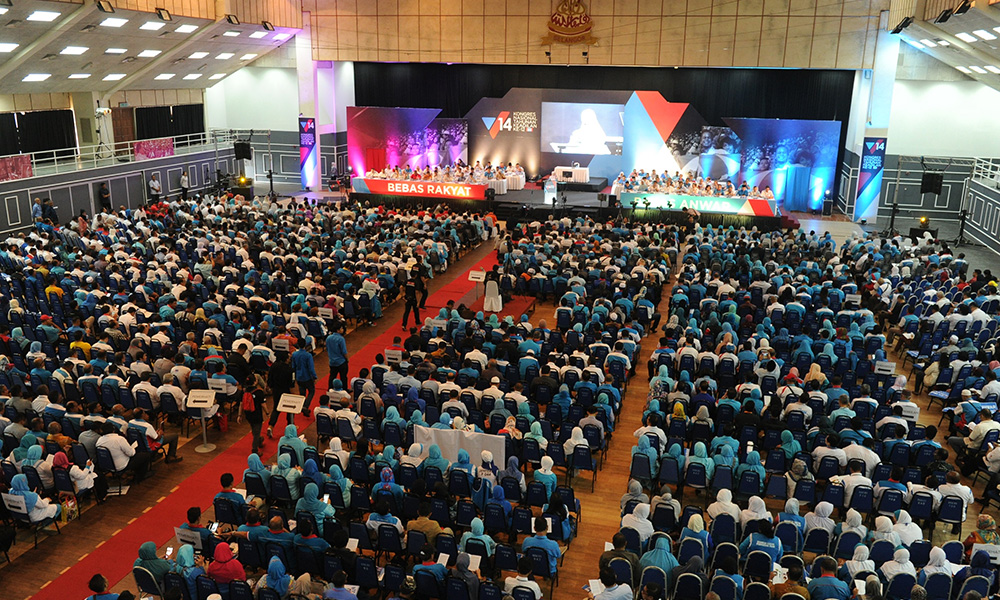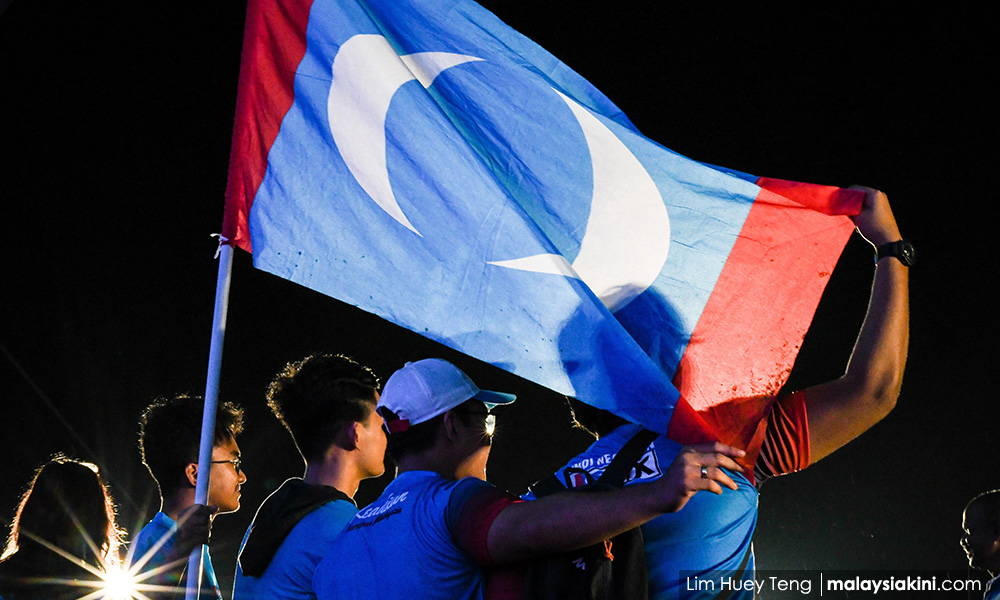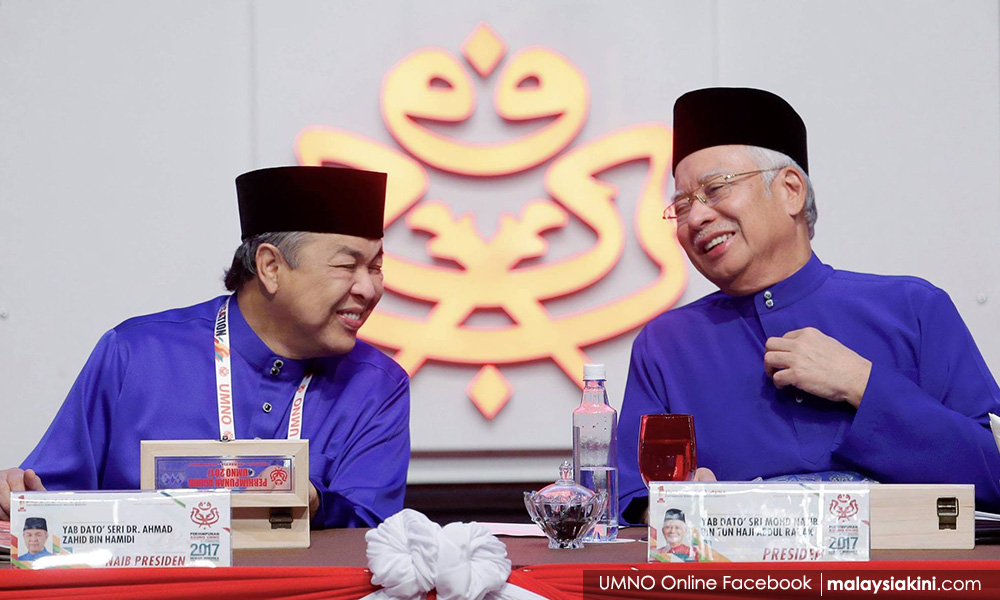
PKR has 50 seats in Parliament. This makes it the largest political party in government.
But somehow, it is still viewed as the ‘weakest link’ in Pakatan Harapan. Outsiders see it as a party wrought with factionalism and infighting, unable to agree on anything because its members are self-interested and uncompromising.
So how did the ‘weakest’ party in Harapan win the most number of seats in the 14th general election? My answer is that the open factionalism in PKR has given the party more vibrancy and organisational efficiency than its coalition partners.
Factions in political parties are universally seen as a problem. They are regarded as the ‘dark side’ of political parties, even though they have existed in every major political party throughout history.
While factions exist in Bersatu, Amanah and DAP, the contests between the factions in PKR are the most open and public.
We hate this factionalism so much that we ask for PKR not to ‘air their dirty laundry in public,’ because this leads to perceptions of disunity, which will cut through the veins of the party and culminate in rupture.
But I challenge that notion.
Better organisation
The first reason is that because each of PKR’s factions have to organise their members better to win seats – and, as we know, the best way for a faction to gain strength and influence within the party is to win seats in the general election.
You have to first negotiate with the central committee and the party president to allow your faction to contest a larger number of seats, and in turn, return these seats with a high winning percentage.

To win these seats, your faction must work harder and organise better than others. You have to do the work no one wants to do. You have to keep your grassroots members motivated, you have to plan early, aside from the other million things to adapt to changing situations.
This is called the ‘competition effect’ within each party. The fear of losing influence to the other faction motivates a faction to do well. And in my opinion, this was one of the main reasons why PKR was able to win more seats than the other parties in Harapan.
Of course, you may say that the election was won by Harapan because of an illusory and inexplicable ‘tsunami’, from which PKR was merely a beneficiary.
But anyone who has ever organised party members and volunteers for an election will tell you that an election is never won without strong organisation from the ground. If you do not knock on enough doors or make enough cold calls, you wouldn’t have the slightest chance of success.
It is easy to say GE14 was won by a ‘tsunami’, but it is surely wrong to say this is the only reason. Elections are won by how well you organise, and my argument is that PKR factionalism benefited the coalition in motivating their members to organise better than the rest.
Greater moderation
The second reason why I think PKR’s factionalism is beneficial is that it has pushed its leaders to adopt more moderate and progressive stances.
In Torun Dewan and Francesco Squintani’s article “In Defence of Factions,” they argue that factions are beneficial – even necessary – as it will likely make the leaders of the factions avoid adopting extreme ideological stances, because their success will invariably depend on their moderation.
This is a very logical argument. Factions are essentially groups of like-minded people. Without factions, a party will only consist of individuals without groups, and the decision of the party will be made by the president alone.
Individuals must form factions in a party to gain bargaining power. And if you are part of a faction, your personal extreme views will slowly be diluted for a more moderate one in the group. Consequently, the stance of the factions will be more moderate than the stance of the individual.
We only need to think back to Umno under the leadership of Najib Abdul Razak to know of the detrimental effects of a factionless party. His strategy from the start of his presidency was to purge all dissenting camps, like those of Muhyiddin Yassin, Mohd Shafie Apdal and Mukhriz Mahathir.

In turn, this diluted any remaining factional power Ahmad Zahid Hamidi had within the party.
As a result, Umno drifted into the ideological extreme. The traditional moral codes of abuse of power and corruption became negotiable. Stances of racial and religious extremism crept into the mainstream.
The 'Kool-Aid' Khairy Jamaluddin claimed Umno/BN became "delusional, drunk on our own Kool-Aid and got carried away" and that this was the result of a lack of competition from within party ranks.
This is because the opposite of factionalism is dominance.
That is why I think PKR’s factions have brought sufficient ideological moderation that is more acceptable to the general public.
It is still the only multiracial party that recognises the importance of a non-ethnic approach as a destination, but simultaneously sensitive enough to the country’s racial history.
Researchers like Jide Nzelibe find that factions do bring such benefits to the party and society at large. These benefits must not be ignored as we analyse the electoral success of PKR in GE14.
Of course, factions are not always a good thing. Like all things, it depends on the net effect over time. And as such, they are not always bad either, not even when it is in full view of the public.
JAMES CHAI works at a law firm. His voyage in life is made less lonely with a family of deep love, friends of good humour and teachers of selfless giving. This affirms his conviction in the common goodness of people: the better angels of our nature. He tweets at @JamesJSChai. - Mkini



No comments:
Post a Comment
Note: Only a member of this blog may post a comment.